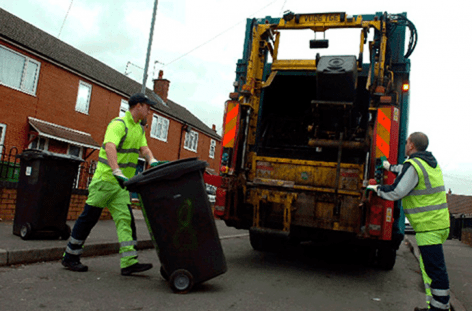Waste and recycling collections are among the most visible services any council delivers. And, the issue regularly features on the national news agenda. In recent times, we have seen strikes and threats of strikes by operatives in several locations; changes being imposed by China for imports of recycling; discussions on standardising colours of bins; and controversy over the regularity of some collections, all hit the headlines.

On the other hand, it is a topic that is high on the personal priority list for many householders. After all, most homes have multiple kinds of bins or containers these days, and remembering to put the correct ones out is a weekly challenge. Commutes to work and the school run can be held up by large bin lorries on a regular basis, with dangerous manoeuvres being performed by some impatient members of the public putting crews lives in danger. In some areas, streets strewn with fly tipped rubbish or bulky items awaiting collection can act as a major source of public dissatisfaction.
Added to this, residents need to interact with the council around waste both to gather information about the collections themselves and to complain about related problems. Missed bins do, after all, remain a source of frustration and irritation to many residents across the UK.
In a recent Yotta-commissioned survey of 1,000 UK adults, more than a third (35%) said they had previously complained to their local authority about an issue relating to a waste or recycling collection. Moreover, 95% of people, who had ever complained, had made a complaint in the past ‘two or three years’. Compounding the issue, the public are often quick to report missed bins.
53% of UK adults say that they would report a missed general rubbish bin within 23 hours of it being missed with nearly a quarter of the total sample (22%) saying they would report within two hours.
And yet, councils are not always quick to resolve the issues. Just 24% of waste and recycling issues are resolved the same day while 8% of queries in total are never sorted out.
Challenges
Unfortunately, many councils today face challenges both in delivering the level of efficiencies the public want and in achieving high-quality two-way communication about issues arising during the process. There is a clear need to achieve faster and more efficient connectivity both across council waste teams and between the council and the public they serve.
Part of the problem is that residents, and consequently councils, are often over-reliant on traditional means of communication. The Yotta survey reveals a fixed line phone call is still the preferred method of reporting a missed waste or recycling collection to the council, favoured by 41% of respondents. Also, when it came to checking when their next general waste collection was due, 41% of the survey sample said their preference was for reviewing a calendar delivered in paper form by the council.
These figures are a worry. Local authorities should be encouraging people to move to digital forms of engagement wherever possible. It’s in line with the government’s digital transformation strategy; its typically less expensive than using traditional channels and it supports greater reporting flexibility for the public.
An even more urgent concern is that councils often don’t have the necessary information to hand to rapidly resolve issues. Many local authorities across the UK continue to rely on outdated manual processes. Paper-based reports are commonly used. Often, though, there is a lack of connectivity between the collection crews out in the field; the management team in the back office and the public, looking for fast answers to their queries and complaints.
The process is often slow, cumbersome and inefficient. Information captured and logged by collection crews may only be made available to the back office on return to base. Even if crews are using some form of mobile technology, ensuring this information is available to those who receive the calls from residents in near real-time, so that they can quickly assess whether the service request is itself a valid one or the resident is at fault, is often missing.
It’s clear that many authorities still lack joined-up digital channels capable of easily and speedily transferring information, which can lead to a clear disconnect between the management and call centre teams in the office, collection crews on the street and digital channels that are trying to be used, thereby slowing down the council response rate.
Solutions
So, what are the solutions to these seemingly intractable problems? In terms of the public’s ongoing reluctance to move to digital, councils need to focus on making the online process for reporting service issues easier, thereby helping enable channel shift.

The latest digital technologies will have a key role to play. The ability of councils to access accurate operational data from waste collection crews in near real-time, process it quickly and keep residents informed of the results will be key.
The latest in-cab waste management technology can offer a great way forward here. Crews can report service issues and the back office can keep crews updated with the latest details on premises they need to visit, bins they must collect, or security codes for locked gates, for example.
This will enable councils to deliver a more proactive service, respond more quickly to public complaints and, therefore, improve the public’s perception of the work they do.
With a mobile in-cab waste management approach in place, the council’s back office and call centre teams would be able to see almost instantly the reasons why a particular bin was missed and immediately alert the householder concerned, with the likely result that the collection could be quickly rescheduled.
It’s a compelling example of a winning solution both for the council and for the public that they serve – and its heralding a new era of connected waste management where we are seeing councils increasingly meeting those previously elusive goals of delivering efficient waste and recycling collection services and proactively meeting the public’s concerns.






Subscribe for free